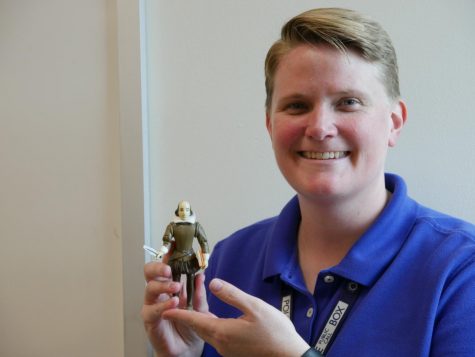Find Your Dream School in 7 Steps
Photo of Radford University’s entrance. Photo courtesy of Abigail Searcy.
Choosing a college is a life-changing decision that can greatly influence your future. It is imperative that you are informed and prepared before making this choice. There are resources to take advantage of and many people willing to help in facilitating this task. Here are some things to look out for when you are attempting to select a university.
- In or out-of-state?
Generally, attending an out-of-state school will be more expensive, so most students avoid this option because of the substantial cost and distance from home. However, it is important to remember that there are grants, scholarships and funds available no matter where you choose to attend. Almost everyone who attends college will be in some sort of financial debt unless you get scholarships or your parents have deep pockets, so you might as well pick somewhere you love and make the investment worth it.
Another thing to consider when looking at potential colleges is that you should make sure you are comfortable with the distance from home. Be sure to have a plan in place if you ever find the need to come home. Going out-of-state has upsides, too. You can experience a change of scenery and obtain great scholarships.
Some students prefer going out-of-state, including senior Newlin Humphrey who applied to Clemson in South Carolina.“I love Virginia, but I’ve lived here my whole life, so I knew I wanted a change of scenery and to go further south. The thing I love about Clemson is that it feels so much like home as well,” said Humphrey.
If going out-of-state does not seem appealing, there are many prestigious universities right here in Virginia. Not to mention, you will save a few bucks.
- Can you see yourself not wanting to transfer?
As any college tour guide will tell you, if the school is for you, you’ll know. It’s as if you are shopping for a wedding dress. When you stumble upon the one you get a feeling, and that is exactly what you want when looking for a college. Does it automatically feel like home? Are the people friendly and welcoming? Is the environment comfortable? If the campus has a positive feel and leaves a good impression, that is generally a good sign. On the other hand, be aware of any red-flags that catch your attention. For example, schools such as VCU that are located in the city may have dangerous areas around campus where crime tends to occur. If there are known scandals or incidents (such as sexual assault or hazing) that have occured on that campus, be aware. Every school has pros and cons, but you should feel completely comfortable.
- Is it within your reach?
To have a wider variety of college options, a strong high school GPA is vital. Colleges want to see that you have challenged yourself academically, maintained good grades and gotten involved in extracurriculars. You should have a well-rounded application when applying to college. If you carelessly coasted through high school, the chances of getting into your dream school are slim. You should ensure that you meet the GPA and SAT requirements before applying. You can check your GPA through the School Counseling Department or by the Powerschool app or website. Pay attention to the school’s average acceptance rate, as some schools are particularly difficult to get into. For example, the Harvard acceptance rate is an astonishingly low 5.4%. As a comparison, Old Dominion University (ODU) has an acceptance rate of 83% and Virginia Commonwealth University (VCU) at 79%. It is okay to apply to a few reach schools, but make sure you have suitable options regarding your past academic achievements.
- Consider the area around campus.
Remember that when you go off to college, you will eventually leave the campus. Whether it be for a night out with friends, to run errands or go to work, make sure the community surrounding campus is safe. Do you have easy access to a bank, pharmacy and grocery store? Some campuses are near shopping centers, amusement parks and beaches. Will you need a bike or a car? Most colleges allow you to have a car during your first year, but it may cost extra. Bikes are a cheap, easy way to get to and from class on a large campus. Although it is perfectly fine to spend most of your time on campus, you should have a few options when you want to explore the community.
- Is the size right for you?
The sizes of the student body and campus itself varies between each university. In turn, the class sizes can vary widely, from 200+ students in a lecture to an intimate classroom setting of 15 or less. In general, smaller schools tend to have smaller class sizes. If you like to ask questions and need one-on-one assistance from your professor, a small class would be a better option. If it is a course you are comfortable and confident with, you might be okay in a large lecture. This is an important factor, so ensure that you pick somewhere that suits your learning style.
- Does it Have Your Major or Backups?
Although the majority of freshmen go in undecided, you should have a vague idea of what studies interest you. If you still are not sure when the time comes to pick your major, choose something broad like Communications. Degrees in broad subjects will give you a wide variety of jobs to choose from after graduation. Even if you haven’t settled on one specific major, it is smart to have some options in mind so you will not have to deal with the burden of transferring in the future. All college websites provide a list of the areas of study they offer. If you can find a few that interest you, you will be in good hands.
- Life on Campus
Arguably, the most important factor of the college decision revolves around campus life. In order to meet new people, get involved and have a sense of community, clubs are important. Most campuses boast of hundreds of clubs that appeal to every student. This is a way to meet people with similar interests and get plugged in on campus. Another thing to consider is Greek life. Do you plan on joining a fraternity or sorority? If that is an important aspect to you, make sure there are options available.
There are a multitude of things to consider when trying to pick your future college; after all, it will be your home for the next 4+ years. No college is completely perfect and everywhere has their pros and cons, but you should decide which is the best fit for your lifestyle. Take into consideration each of the things mentioned above, and your college search should be a breeze.























